 Citizens who are concerned with the state of media and democracy in the United States have gathered in Boston to talk about how to reform media. People are here to dig into some of the biggest developments in media, technology and democratic society to get closer to a truth, which can help citizens take action and improve and transform media in their communities.
Citizens who are concerned with the state of media and democracy in the United States have gathered in Boston to talk about how to reform media. People are here to dig into some of the biggest developments in media, technology and democratic society to get closer to a truth, which can help citizens take action and improve and transform media in their communities.
One of the panels at the conference, "WikiLeaks, Journalism and Modern-Day Muckraking," offered attendees a chance to discuss how WikiLeaks has forced journalists to rethink their role in society and how, in an age of radical transparency, the need for muckraking journalism is greater than ever.
Participating panelists included Greg Mitchell of The Nation, Micah Sifry of the Personal Democracy Forum, Christopher Warren of Australian Media and the Entertainment & Arts Alliance, Emily Warren of the Tow Center for Digital Journalism at Columbia University, and Glenn Greenwald of Salon.com. Amy Goodman, host of Democracy Now! moderated.
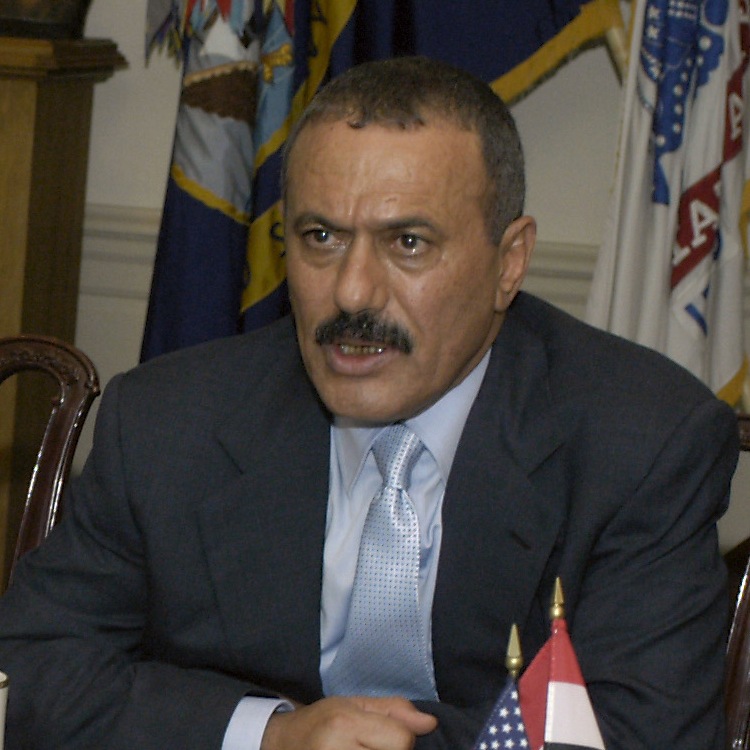 By now, those following the story closely are aware that the position of the US on President Ali Abdullah Saleh’s regime has shifted greatly. A near-180 has taken place.
By now, those following the story closely are aware that the position of the US on President Ali Abdullah Saleh’s regime has shifted greatly. A near-180 has taken place.
As announced last evening, the New York Times reported the “United States, which long supported Yemen's president, even in the face of recent widespread protests, has now quietly shifted positions and has concluded that he is unlikely to bring about the required reforms and must be eased out of office, according to American and Yemeni officials.”
A news alert from the newspaper continued, “The American position began to shift in the past week, administration officials said. While American officials have not publicly pressed President Ali Abdullah Saleh to go, they have told allies and some reporters that they now view his hold on office as untenable, and they believe he should leave.”
Since the announcement, suggestions are now floating around that Saleh is buckling down. Well aware that he has lost much of the US’ support, his regime’s police and security forces are stepping in to suppress protests that are, in addition to the increased violence and instability, largely to blame for the US shift.
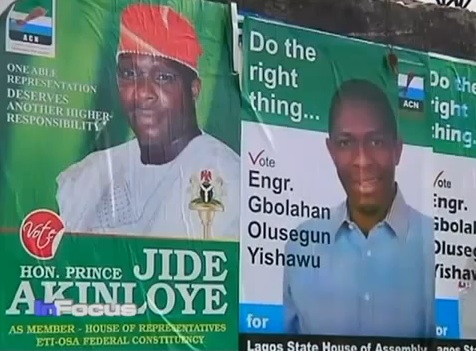 Nigerian elections that had been postponed until Monday, April 4th, have been postponed yet again by the Independent National Electoral Commission (INEC), which is headed by Professor Attahiru Jega. From the INEC headquarters, the rescheduling was announced by Jega, who said since announcing the rescheduling several requests made to the Commission have urged it to consult more widely and ensure the two-day postponement addresses all logistical issues.
Nigerian elections that had been postponed until Monday, April 4th, have been postponed yet again by the Independent National Electoral Commission (INEC), which is headed by Professor Attahiru Jega. From the INEC headquarters, the rescheduling was announced by Jega, who said since announcing the rescheduling several requests made to the Commission have urged it to consult more widely and ensure the two-day postponement addresses all logistical issues.
The Commission consulted with the Chairmen of all the political parties in Nigeria and decided the best thing to do would be to reschedule the already rescheduled elections. Thus, the elections, assuming no more logistical problems (corruption) get in the way, will be held on the following dates: Saturday, April 9, Senate and House of Representatives Elections; Saturday, April 16, Presidential Elections, Tuesday, April 26, State of House of Assembly and Governorship Elections.”
This announcement undoubtedly means a tense pre-election social and political climate that has already seen hundreds killed in what Amnesty International calls “politically-motivated, communal and sectarian violence” will continue to persist.
When held, this will be Nigeria’s third general election since military rule ended in 1999. The country has held two previous elections in 2003 and 2007. Both elections resulted in allegations of rigging, voter intimidation and ballot vote snatching.
Cables on sex trafficking in Armenia reveal frank contempt toward victims and contradictory statements from the law enforcement officials on collusion in sex trafficking. The Republic of Armenia General Prosecutor's Office released an explanation on 14th February 2011 on the corruption allegation mentioned in a cable. The explanation in the official press release is contradicted by information on reports of Armenian investigative journalists and TIP reports published by the U.S. Department of State.
Concerning the information given to the US diplomats by the prostitutes that the employee of the RA General Prosecutor’s Office A. Yeremyan committed violations, it is informed that at that time the RA Prosecutor General tasked to conduct investigation, a interdepartmental committee was formed and all the appeals were checked which were not confirmed based on the conclusions of the interdepartmental committee and the results of the investigation.
The 'violations' mentioned above are mentioned in the cable 06YEREVAN1091, which was written in 2006. This assertion about the 'investigation' against complicity of an official A.Yeremyan has been proven to be false ever since 2006, the year the incident occurred, mainly by the Trafficking in Persons Report (TIP) published annually by the U.S. Department of State. The following are evidences that the General Prosecutor's Office did nothing meaningful on the allegation in 2006 until this day:
2006 TIP report:
The government failed to vigorously investigate and prosecute ongoing and widespread allegations of public officials' complicity in trafficking. Victim-blaming and lack of sensitivity for victims remain a problem among Armenian officials, particularly in the judiciary.
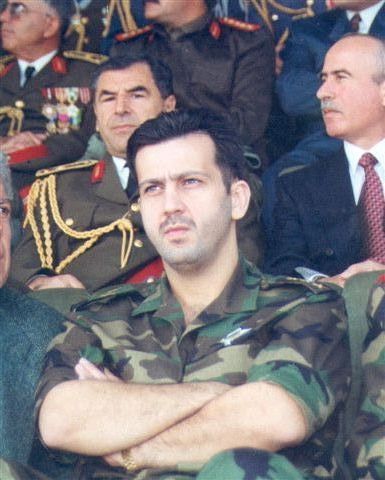 Reuters reports that Syria will set up an investigation into the protest deaths, as well as form a committee to "solve the problem of the 1962 census" during which 150,000 Syrian Kurds were denied nationality. It is doubtful that an investigation will be regarded as hopeful by protesters who blame the violence on Maher al-Assad, brother of the Syrian president, one of his closest advisors and head of the Republican Guard.
Reuters reports that Syria will set up an investigation into the protest deaths, as well as form a committee to "solve the problem of the 1962 census" during which 150,000 Syrian Kurds were denied nationality. It is doubtful that an investigation will be regarded as hopeful by protesters who blame the violence on Maher al-Assad, brother of the Syrian president, one of his closest advisors and head of the Republican Guard.
While Bashar al-Assad is the public face of Syrian governance, his brother is in charge of the security forces that provide Syria with one of the worst human rights and press freedoms records in the world. One of the many things he is commonly
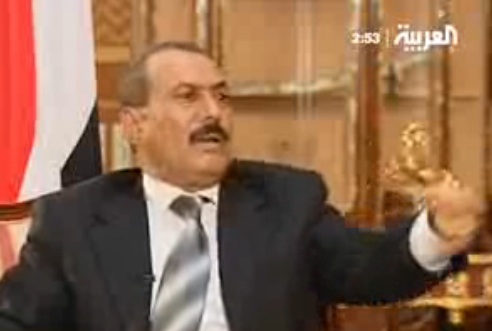 Cables recently posted by the Spanish news organization El Pais provide more details on the manic and overbearing Yemen President Ali Abdullah Saleh. The cables appear just as Saleh seems to be closer to transferring control of Yemen to another leader, who can diffuse the growing revolt against his regime and as The Nation’s Jeremy Scahill, one American journalist who has not shied away from using the WikiLeaks cables to inform his work, publishes a major story on what is at stake for the US in Yemen.
Cables recently posted by the Spanish news organization El Pais provide more details on the manic and overbearing Yemen President Ali Abdullah Saleh. The cables appear just as Saleh seems to be closer to transferring control of Yemen to another leader, who can diffuse the growing revolt against his regime and as The Nation’s Jeremy Scahill, one American journalist who has not shied away from using the WikiLeaks cables to inform his work, publishes a major story on what is at stake for the US in Yemen.
Over the weekend, widespread rumors suggested Saleh would be stepping down. But, by Sunday, March 27, Saleh’s zealous hold on power only tightened in the face of this notion that he would no longer be ruling Yemen. On the American Sunday morning talk show “Meet the Press,” US Secretary of Defense Robert Gates said his fall or replacement by a weaker leader would be “a real problem” for US counterterrorism operations, pretty much solidifying the fact that Saleh would not be leaving yet.
A cable from August 31, 2009, illuminates a leader, who has grown increasingly unstable in recent years. One Member of Parliament explains to then-US Ambassador to Yemen Stephen Seche how the country has serious problems but when he talks about them, Saleh gets angry and tells him to go.
Firoze Manji of Pambazuka News appeared on The Real News Network to talk about the uprisings in southern Africa. He highlighted uprisings in Burkina Faso, Cameroon, Djibouti, Gabon and Swaziland and also suggested uprisings are brewing in Kenya and South Africa.
WL Central has been keeping a close eye on many of these uprisings and how they have been brutally suppressed.
Manji explains why people in Africa are revolting:
The reason why this is happening is that everyone shares the experience of the Egyptians and the Tunisians. Yes, the focus has been on getting rid of dictators, but the real common thing that everyone faces has been thirty years of structural adjustment programs (SAPs), thirty years where all social services have been privatized, thirty years where there has been massive accumulation by dispossession. You have the peasantry losing land. You have people migrating to the cities. You have a huge decline in income.
Manji notes the issue of "political dispossession" saying unfortunately governments today are more inclined to listen to the IMF, the World Bank and international aid agencies than they are citizens. He adds "percolating discontent” has not been at this level since the anti-colonial revolutions of the 1950s.
Next, a news organization in Nigeria, has been granted access to all of the US State Embassy Cables from Nigeria. The organization began covering the cables this month.
Unfortunately, WL Central has not really covered the revelations coming out of Nigeria (and that should hopefully change in the coming days). For now, here is a video with Olu Jacob, a journalist from Next, talking about the Nigerian cables and how Next has gone about covering the revelations on STV.
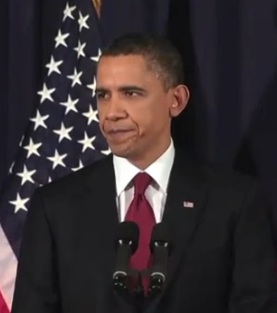 Libya is not Iraq but on Monday, March 28, 2011, US President Barack Obama delivered an address that aimed to brand a pre-emptive war and sell it to the American people. Obama sought to justify intervention into Libya by making the case that it was in America’s interest to act and if action had not been taken a mass atrocity could have taken place.
Libya is not Iraq but on Monday, March 28, 2011, US President Barack Obama delivered an address that aimed to brand a pre-emptive war and sell it to the American people. Obama sought to justify intervention into Libya by making the case that it was in America’s interest to act and if action had not been taken a mass atrocity could have taken place.
Few would probably dispute the accuracy of Obama’s explanation of events that have unfolded in accurate. Although the narrative explicitly serves the Western powers that have mounted an intervention, it is all true that Gaddafi launched a military campaign against his own people, attacked hospitals and ambulances, arrested, sexually assaulted and killed journalists, choked of fuel and food supplies, shut off water to Misratah, cities, shelled mosques and apartments, and used jets and helicopters to unleash air assaults on Libyans. It is true that a major humanitarian crisis was erupting, one that human rights organizations that handle refugees were struggling to prevent from worsening.
The “rebels” (that should not be regarded as one homogenous group of people) in Benghazi did face an onslaught from Gaddafi’s forces. Some of the “rebels” did in fact want Western powers to intervene. And so, a UN Security Council Resolution was obtained giving the US, European Union countries and others permission to take action.
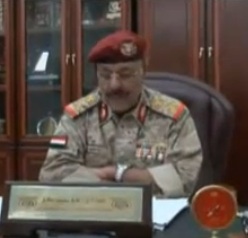 Saudi pilots tasked with striking Houthis in northern Yemen aborted the mission after realizing the site they were being asked to hit was the headquarters of General Ali Mohsen Al-Ahmar, a Yemeni northern area commander and known political opponent of Saleh. That’s what a cable released by WikiLeaks sent out from the US Embassy in Riyadh on February 7, 2010 reads.
Saudi pilots tasked with striking Houthis in northern Yemen aborted the mission after realizing the site they were being asked to hit was the headquarters of General Ali Mohsen Al-Ahmar, a Yemeni northern area commander and known political opponent of Saleh. That’s what a cable released by WikiLeaks sent out from the US Embassy in Riyadh on February 7, 2010 reads.
In recent days, Al-Ahmar has become a significant player in the unfolding events in Yemen. About a week ago he declared that he was going to join the revolution. Just this past Sunday, according to Agence France Presse, he “vowed to bring about Saleh’s overthrow.”
The revelation comes from a meeting that took place between Ambassador James B. Smith and Assistant Minister of Defense and Aviation Prince Khaled bin Sultan. Ambassador Smith met with Prince Khaled to express concerns about the “sharing” of US government satellite imagery with Saudi Arabia after evidence of Saudi aircraft strikes on civilian targets. Particularly, Ambassador Smith expressed concern over “an apparent Saudi air strike on a building that the US believed to be a Yemeni medical clinic.” Prince Khaled is shown a satellite image of the building.
Two weeks after the publishing of the full, unedited version of a diplomatic cable exposing the total invasion of Bulgarian economics and politics by the organized crime, the topic seems to be closed for Bulgarian media.
Bulgaria is known to have one of the most censored media in the European Union. In the last press freedom index of Reporters without Borders, the country shares the 70th ranking with Benin, Kenya and Greece.
One of the reasons for such low freedom of speech standards is shady media ownership. As the US ambassador reports in the cable, figures connected to organized crime own, directly or indirectly, the country’s mainstream printed and electronic media. This results in censorship and self-censorship on topics about the ties between the Mafia and the politics.
The media reaction, after the cable on organized crime was published, went through the classic way of dealing with such scandalous information: 1. Ignore it 2. Ridicule it 3. Fight it... then return to number 1.
1. Ignore it: The initial publication of the unedited cable on the Bivol independent investigative journalism web site was only reprinted in few independent blogs and web sites, most of them edited from abroad: (Ivo Indzhev, Eurochicago, Kafene). Only one big Bulgarian newspaper printed a link to the publication in a short article. The content of the cable, however, was greatly commented on and cited in online forums.
A major panel discussion was recently put on by New York University Law. The panel featured various law, Internet, journalism and national security experts discussing WikiLeaks' release of State Department cables. The individuals at the panel included:
Simon Chesterman, Global Professor of Law, Director, New York University School of Law Singapore Program
Norman Dorsen, Frederick I. and Grace A. Stokes Professor of Law, Co-Director, Arthur Garfield Hays Civil Liberties Program
Brian Markley, Partner, Cahill Gordon & Reindel
Burt Neuborne, Inez Milholland Professor of Civil Liberties, Legal Director, Brennan Center for Justice
Samuel Rascoff, Assistant Professor of Law
Jay Rosen, Associate Professor of Journalism, New York University, Author, PressThink
Katherine Strandburg, Professor of Law
Diane Zimmerman, Samuel Tilden Professor of Law Emeritus
Moderator:
Ira Rubinstein, Senior Fellow, Information Law Institute
Panelists each discussed what worried them most about the response to WikiLeaks' leaking of cables and other documents in the past year. The Panel then got into some more specific issues.
Samuel Rascoff, who came to NYU from the New York Police Department, opens the panel saying:
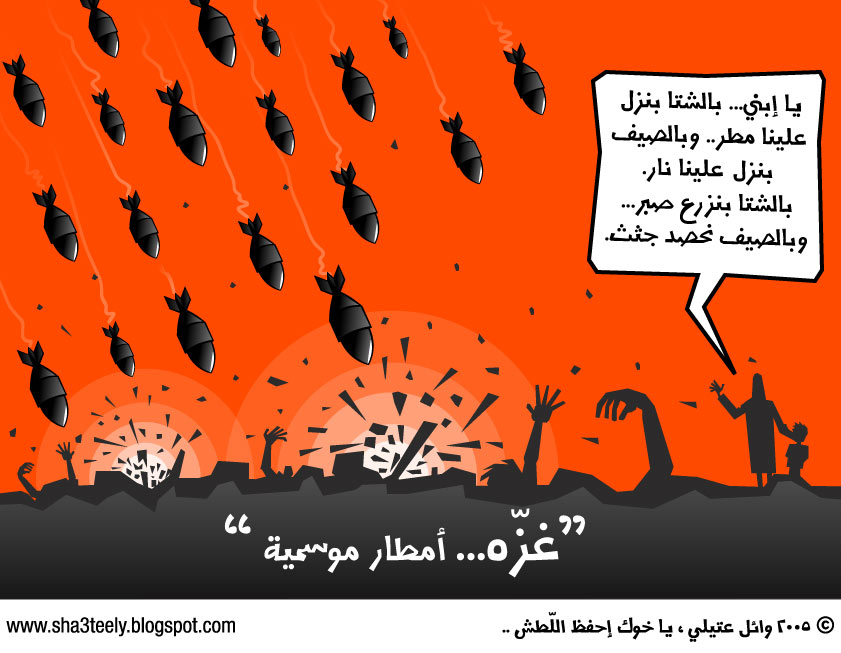 Bombardment of Lebanon by Israel, according to UPI, began on July 12, 2006, just after “Shiite Hezbollah militiamen captured two Israeli soldiers and killed eight others in cross-border attacks.” The country’s infrastructure had been a prime target with the country’s sole international airport in Beirut, ports, power stations, telecommunications, roads and bridges and buildings being devastated. Over three hundred Lebanese civilians had been killed and, simultaneously, the Gaza strip was under assault from Israel as well.
Bombardment of Lebanon by Israel, according to UPI, began on July 12, 2006, just after “Shiite Hezbollah militiamen captured two Israeli soldiers and killed eight others in cross-border attacks.” The country’s infrastructure had been a prime target with the country’s sole international airport in Beirut, ports, power stations, telecommunications, roads and bridges and buildings being devastated. Over three hundred Lebanese civilians had been killed and, simultaneously, the Gaza strip was under assault from Israel as well.
Israel launched the attacks in an effort to neutralize Hezbollah. Arab leaders unified behind a call for an immediate cease-fire in the war. They came out strongly in defense of the Lebanese government and stated a top priority was to silence weapons and help bring an end to the attacks on Lebanese civilians and the destruction of infrastructure.
This is the climate that led columnist Saad Al Bawardi to publish a poem titled, “Letter to Bush,” in an Al Jazeera newspaper on August 13, 2006. The poem condemned then-U.S. President George W. Bush and “U.S. foreign policy regarding Lebanon, Palestine, and Iraq.” And, it was the subject of a diplomatic cable released by WikiLeaks that was sent out by US Ambassador to Saudi Arabia James C. Oberwetter from the Riyadh embassy in Saudi Arabia on August 16, 2006.
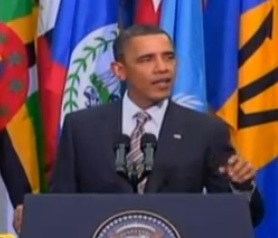 US President Barack Obama, currently on a trip through Latin America, visited Chile yesterday to further expand trade relations and military and security cooperation between the two countries. He did not intend for his visit to be about the US’ history of interfering in Chile’s domestic affairs or, for that matter, human rights. But, the first question President Obama was asked was the following: Is the United States “willing to ask for forgiveness for what it did in those very difficult years in the ‘70s in Chile?”
US President Barack Obama, currently on a trip through Latin America, visited Chile yesterday to further expand trade relations and military and security cooperation between the two countries. He did not intend for his visit to be about the US’ history of interfering in Chile’s domestic affairs or, for that matter, human rights. But, the first question President Obama was asked was the following: Is the United States “willing to ask for forgiveness for what it did in those very difficult years in the ‘70s in Chile?”
President Obama answered, “I think it’s very important for all of us to know our history. And obviously the history of relations between the United States and Latin America have at times been extremely rocky and have at times been difficult.” But, “I think it’s important, though, for us, even as we understand our history and gain clarity about our history, that we’re not trapped by our history.”
Furthermore, President Obama said he could not “speak to all of the policies of the past” but could “speak certainly to the policies of the present and the future.” As he noted that the US has supported democratic reform in Chile for two decades, President Obama refused to acknowledge the true history of US relations with Chile, a history that involved supporting Gen. Augusto Pinochet in a CIA-backed coup in 1973.
President Obama may not want to get “trapped” in a discussion that leads him to have to take responsibility for the country, which he currently presides over, but files released between 1998 and 2003 show, according to investigative reporter Peter Kornbluh, “The US created a climate of a coup in Chile, a situation of chaos and agitation.”
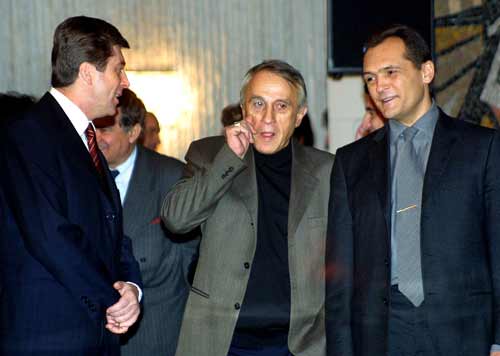
In June 2003, the Bulgarian weekly Kapital published an article about the privatization of "Atomenergoremont" - the Bulgarian State-owned company, (the only one), maintaining the Kozloduy Nuclear Power Plant. Under the suggestive title "Criminal Radiation," it exposed the main competing candidates: Vasil Bozhkov Aka "The Scull" and Konstantin Dimitrov AKA "Samokovetza,” both known as controversial figures, suspected of criminal activities.
Just a few months later, Konstantin Dimitrov Samokovetza was shot dead in Amsterdam by a contract killer. As for Atomenergoremont, it was sold to the "Bulgarian Energy Company" owned by Hristo Kovachki, the next controversial businessman, who is currently on bail over accusations of tax evasion.
However, the Wikileaks unedited cable recently revealed that James Pardew, the American ambassador to Sofia at the time, wrote in 2005 that Vasil Bozhkov "is believed to control “Risk Engineering,” another key firm in the Bulgarian nuclear business. On the other hand, Ambassador Pardew also reported that Bozhkov is considered to be the ringleader of an organized crime group. "Bozhkov's illegal activities include money laundering, privatization fraud, intimidation, extortion and racketeering," the cable notes.
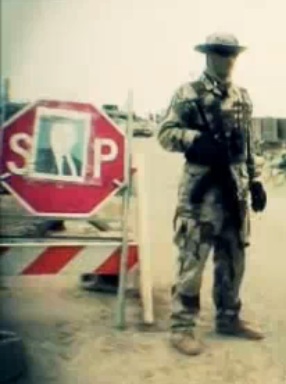 This date, March 19, 2011, marks the beginning of the ninth year of the US war in Iraq. The war, which began in 2003 with a bombing campaign of “shock and awe," has for years been more of an occupation than a war. Despite the fact that many believe the war is over (especially Americans), the US still has 47,000 troops in Iraq and, despite a 2011 withdrawal date, will likely continue to have tens of thousands of soldiers based in Iraq for years to come.
This date, March 19, 2011, marks the beginning of the ninth year of the US war in Iraq. The war, which began in 2003 with a bombing campaign of “shock and awe," has for years been more of an occupation than a war. Despite the fact that many believe the war is over (especially Americans), the US still has 47,000 troops in Iraq and, despite a 2011 withdrawal date, will likely continue to have tens of thousands of soldiers based in Iraq for years to come.
The past year has seen the world learn a great deal about the US war and occupation of Iraq. With the WikiLeaks release of US State Cables, the Iraq War Logs, and a “Collateral Murder” video showing US soldiers firing on journalists and innocent civilians from an Apache helicopter, the criminal nature of the war and occupation has become more evident. To mark the end of eight years of US troops in Iraq and the beginning of a ninth year, it is worth noting the many revelations on Iraq that have become known thanks to WikiLeaks.
On October 22, 2010, 390,000 field reports, which became known as the Iraq War Logs, showed the regular use of abuse, brutality and torture used on Iraqis by Iraqi Police and Iraqi Security Forces. The logs revealed, despite US claims, a tracking of civilian deaths had been going on, and, in fact, 66,000 civilian deaths (15,000 which were previously unknown) had occurred.

В края на декември 2010 г. сайтът Wikileaks даде начало на скандала Cablegate: публикацията на 251 287 секретни американски дипломатически телеграми. До този момент в сайта са публикувани 5000 телеграми или около 2% от цялата база. Осем от публикуваните до момента телеграми са от американското посолство в София.
Общо в базата данни на Wikileaks има 978 дипломатически телеграми от посолството на САЩ в София. В още 66 грами от други посолства се среща етикетът Bulgaria.
На 1 декември 2010 г. Гардиън публикува в сайта си дипломатическа телеграма на американското посолство в София за организираната престъпност в България.
На 7 декември 2010 Монд публикува обзорен материал за влиянието на руската мафия в Европа, в който също се цитира грамата, подписана от посланик Джеймс Пардю.
От статията в Монд научаваме също, че има и друга телеграма датирана от 11 септември 2009 г., която също е посветена на българската организирана престъпност. В нея има раздел "Руска връзка", където се коментира представителят на Майкъл Чорни в България – адвокатът Тодор Батков. Посолството подчертава неговите солидни политически връзки и факта, че през 2008 г. е награден от президента Георги Първанов с най-високото държавно отличие орден „Стара планина”.
Десет дни след публикацията в Монд, на 17 декември 2010 в сайта на Wikileaks беше публикуван цензурираният от Гардиън текст на дипломатическата телеграма от 7 юли 2005, подписана от посланик Джеймс Пардю.
Текстът на телеграмата от септември 2009 така и не видя бял свят и до този момент единствено журналистите от изданията акредитирани от Wikileaks са запознати с него.

Bulgarian translation here.
As described in an article on WL Central yesterday, 2011-03-17 Unredacted cable from Sofia shows the total invasion of the state by organized crime, a cable which had 3/4 of its text redacted by the Guardian has now been published in full. This WL Central writer is also a member of the web site Bivol which published the unredacted cable.
Why did The Guardian and Le Monde Conceal Information about Crime in Bulgaria?
The stated policy of Wikileaks is to not publish the original texts of the cables, but rather censored versions, edited by the teams of their partner media, after the latter have examined the content of the documents. This way media, known for their professionalism and good reputation, offer a guarantee the names of informers and third parties and their identities would not be revealed.
Wikileaks have chosen this model in order to not endanger the lives of intelligence agents and informers as it happened after the publication of documents about the US and its allies’ military operation in Afghanistan. At the time, even staunch supporters of freedom of speech, such as “Reporters without Borders,” voiced strong and grounded criticism of Julian Assange.
One cannot help it, but note that in the published cable from July 7, 2005, the section “Who Is Who in Bulgarian Organized Crime” abounds with censored paragraphs. We can only guess the reason of the Guardian journalists to conceal individuals and businesses the Embassy believes are part of organized crime. The names of these individuals and businesses, along with information about alleged ties with organized crime, are nothing new for the Bulgarian and international audience.
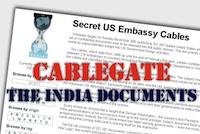 India cables released to The Hindu have created a storm in the past days. Now, The Hindu reports that the US State Department warned the India government of the “existence of such communications on December 23, 2010. Secretary of State Hillary Clinton called External Affairs Minister S.M. Krishna and spoke to Krishna about WikiLeaks. She warned the government of “potentially embarrassing disclosures.”
India cables released to The Hindu have created a storm in the past days. Now, The Hindu reports that the US State Department warned the India government of the “existence of such communications on December 23, 2010. Secretary of State Hillary Clinton called External Affairs Minister S.M. Krishna and spoke to Krishna about WikiLeaks. She warned the government of “potentially embarrassing disclosures.”
On December 21, 2010, then-State Department spokesman P.J. Crowley said, “Those mutual interests are unchanged by any document that has been released by WikiLeaks. We are going to do this one day at a time, one action at a time. The Secretary continues to have regular contacts either in person or in phone calls with world leaders. This issue comes up, and without exception, the leaders reassure her that notwithstanding whatever ripples have been created by these revelations, our relations with these countries will continue because they're important.”
The key cable creating a massive political crisis in India was sent out from Consulate Chennai on May 13, 2009. A US diplomat writes:
The subject of politicians bribing voters, with either cash or gifts, was a recurring theme in the course of covering the 2009 election campaigns in South India. Wherever we went, journalists, politicians, and voters spoke of the bribes as a commonly accepted fact of the election process. Political insiders, and in some instances candidates themselves, admitted to us that candidates regularly violate India's election rules in the course of campaigning for office. This cable examines methods by which political parties bribe voters and how those bribes affect elections in India.
Analysis of unedited cable: 2011-03-18 Bulgarian Organized Crime Uncensored
2011-03-19 Bulgarian "Criminal Radiation" Leaks from Unedited Wikileaks Cable
Bulgarian translation of both articles here.
UPDATE: The Wikileaks site has now been updated with the uncensored version of the 05SOFIA1207 cable. The full text scores 5226 words compared to the 1406 words in the Guardian redacted version published on December 1 2010. The redactions are shown clearly here (thanks to commenter rhill for pointing it out). The parts that were redacted are green.
At the end of November, 2010, Wikileaks triggered the Cablegate scandal: the release of 251 287 secret American diplomatic cables. Currently, the site has published 5 000 cables or about 2% of the entire database. Eight of them are from the American Embassy in Sofia.
The Wikileaks site has a total of 978 diplomatic cables from the US Embassy in Sofia. There are another 66 cables with the tag Bulgaria.
On December 1, 2010, The Guardian published on its site the diplomatic cable of the American Embassy in Sofia dedicated to organized crime in Bulgaria.
On December 7, 2010, Le Monde published an overview about the influence of Russian mafia in Europe, also citing the cable, signed by then Ambassador to Sofia, James Pardew.
Theme by Danetsoft and Danang Probo Sayekti inspired by Maksimer